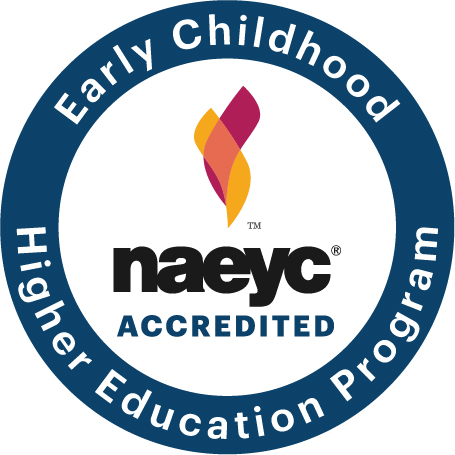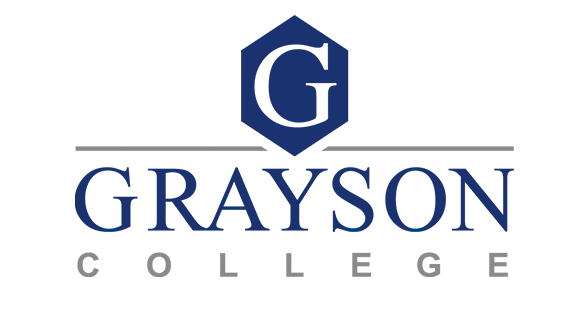Child Development

About
Grayson College offers a Child Development Associate of Applied Science degree, certificates, and Occupational skills awards. The Child Development AAS degree programs are also available in an online format.
This 60-hour degree explores child growth and development and how to interact and provides the strongest education and foundations for all children birth through adolescence with a focus on birth through age eight. This degree has you in early childhood classrooms from the first semester working and learning. This degree allows for many careers in a variety of fields like child care, physical therapy, occupational therapy, Early Childhood Intervention, and Head Start.
Program Learning Outcomes
View Program Learning Outcomes for 2022-2023
View Program Learning Outcomes for 2021-2022
View Program Learning Outcomes for 2019-2020 (PDF)
View Program Learning Outcomes for 2018-2019 (PDF)
PLO Outcomes
View Program Learning Objecive Outcomes for 2024-2025
Program Information
The child development and early childhood education program offers 3 levels of certification. The certifications are designed to build to the Associate's Degree.
- Occupational Skills Award
- Child Development Associate Training --The 3-course professional education part of the CDA credential, a national certification by the Council for Professional Recognition
- Child Development
- Child Development Associate Training --The 3-course professional education part of the CDA credential, a national certification by the Council for Professional Recognition
- Certificates
- Child Development Certificate
- Child Care Administrator Certificate
- Child Development Certificate
- Associates of Applied Science in Child Development and Early Childhood Education
Child Development Mission
The mission of the Grayson College Child Development Program is to prepare students to enter the workforce with knowledge and skills to meet the unique demands of working with children and their families. The twofold purpose of the program is: (1) to equip students with the knowledge of child development and early childhood education in the forms of theoretical frameworks, current research, and practical foundations in the field, and (2) to provide practice and instruction in how to effectively implement knowledge into nurturing, stimulating and appropriate environments for young learners.
Students will be in high-quality Texas Rising Star (TRS) early childhood education classrooms and public schools for observation and practice of skills learned in courses.
Potential Careers
- Instructional Assistants in Head Start
- Paraprofessionals in public schools
- Child care administrators
- Early childhood education teachers
- A professional in private and public agencies with focus on children, child-rearing, foster care and adoption
- Early Childhood Interventionist*
- Child Life Specialist*
- Numerous other degrees and careers use the foundation of this child development and ECE knowledge skills like therapies: art, music, play, occupational therapy, and physical therapy.*
*requires more education past an AAS degree
End of Program Student Learning Outcomes
Our Program Student Learning Outcomes are the NAEYC Standards for Initial Early Childhood Professional Preparation
1. Child Development and Learning in Context
Early childhood educators (a) are grounded in an understanding of the developmental period of early childhood from birth through age 8 across developmental domains. They (b) understand each child as an individual with unique developmental variations. Early childhood educators (c) understand that children learn and develop within relationships and within multiple contexts, including families, cultures, languages, communities, and society. They (d) use this multidimensional knowledge to make evidence- based decisions about how to carry out their responsibilities.
2. Family-Teacher Partnerships and Community Connections
Early childhood educators understand that successful early childhood education depends upon educators’ partnerships with the families of the young children they serve. They (a) know about, understand, and value the diversity in family characteristics. Early childhood educators (b) use this understanding to create respectful, responsive, reciprocal relationships with families and to engage with them as partners in their young children’s development and learning. They (c) use community resources to support young children’s learning and development and to support children’s families, and they build connections between early learning settings, schools, and community organizations and agencies.
3. Child Observation, Documentation, and Assessment
Early childhood educators (a) understand that the primary purpose of assessments is to inform instruction and planning in early learning settings. They (b) know how to use observation, documentation, and other appropriate assessment approaches and tools. Early childhood educators (c) use screening and assessment tools in ways that are ethically grounded and developmentally, culturally, ability, and linguistically appropriate to document developmental progress and promote positive outcomes for each child. In partnership with families and professional colleagues, early childhood educators (d) use assessments to document individual children’s progress and, based on the findings, to plan learning experiences.
4. Developmentally, Culturally, and Linguistically Appropriate Teaching Practices
Early childhood educators understand that teaching and learning with young children is a complex enterprise, and its details vary depending on children’s ages and characteristics and on the settings in which teaching and learning occur. They (a) understand and demonstrate positive, caring, supportive relationships and interactions as the foundation for their work with young children. They (b) understand and use teaching skills that are responsive to the learning trajectories of young children and to the needs of each child. Early childhood educators (c) use a broad repertoire of developmentally appropriate and culturally and linguistically relevant, anti-bias, and evidence-based teaching approaches that reflect the principles of universal design for learning.
5. Knowledge, Application, and Integration of Academic Content in the Early Childhood Curriculum
Early childhood educators have knowledge of the content of the academic disciplines (e.g., language and literacy, the arts, mathematics, social studies, science, technology and engineering, physical education) and of the pedagogical methods for teaching each discipline. They (a) understand the central concepts, the methods and tools of inquiry, and the structures in each academic discipline. Educators (b) understand pedagogy, including how young children learn and process information in each discipline, the learning trajectories for each discipline, and how teachers use this knowledge to inform their practice They (c) apply this knowledge using early learning standards and other resources to make decisions about spontaneous and planned learning experiences and about curriculum development, implementation, and evaluation to ensure that learning will be stimulating, challenging, and meaningful to each child.
6. Professionalism as an Early Childhood Educator
Early childhood educators (a) identify and participate as members of the early childhood profession. They serve as informed advocates for young children, for the families of the children in their care, and for the early childhood profession. They (b) know and use ethical guidelines and other early childhood professional guidelines.
They (c) have professional communication skills that effectively support their relationships and work young children, families, and colleagues. Early childhood educators (d) are continuous, collaborative learners who (e) develop and sustain the habit of reflective and intentional practice in their daily work with young children and as members of the early childhood profession.
Conceptual Framework
Guiding Principles
Based on our mission statement and vision, as well as NAEYC standards, the following guiding principles govern our program:
- Students and their success in our program is the foundational cornerstone of the program. Developmentally appropriate practices and adult learning strategies are incorporated in all courses. The program recognizes each student is an individual that has been molded by his or her own age, gender, abilities, strengths, areas of growth, family of origin, the community and culture in which he or she is embedded.
- Learning opportunities are designed to teach using active learning in order to allow students to practice in skill building and application of principles. Courses range from broad knowledge to specific skill development.
Interactive learning opportunities are diverse and allow students to learn new knowledge, practice skills and demonstrate mastery. Learning opportunities include field experiences, projects, activities, and assignments where students practice and demonstrate skill.
The most effective teaching strategies are the field experiences. Field experiences offer students the chance to examine children and their diversity including different ethnicities, cultures, socioeconomic status and ability levels (including exceptionalities). In addition, field experiences have the student observing in different educational philosophies like Montessori and High Scope. (NAEYC Standards 1,4 and 5) - Faculty develop and demonstrate innovative and research-based teaching practices that are student-centered and active in order to promote learning, interaction and retention. Instructors are always observing and doing formative assessment of the students for understanding and mastery of the student learning objectives. Changes in content and teaching strategies are based on the assessments. (NAEYC Standard 3 and 4)
- Children, their families and the community guide our program. Each and every child is unique with their own temperament and abilities, and deserves to have the best chances and opportunities for optimal development. Part of working with the whole child is supporting the families and communities in which the children live to support and encourage development in all domains.
Our goal is to equip our college students to provide developmentally appropriate interactions and environments to children to promote optimal development and to share with others, and to advocate for children with their parents and their community in order to change policies for all children. (NAEYC Standard 1, 2 and 6)
Accreditation:
The Grayson College Associates of Applied Science in Child Development degree program is accredited by the Commission on the Accreditation of Early Childhood Higher Education Programs of the National Association for the Education of Young Children. The current accreditation term runs from July 2021 through July 2028.
Michelle Kang
Chief Executive Officer
1401 H Street NW, Suite 600
Washington, DC 20005
202-232-8777 (phone)
